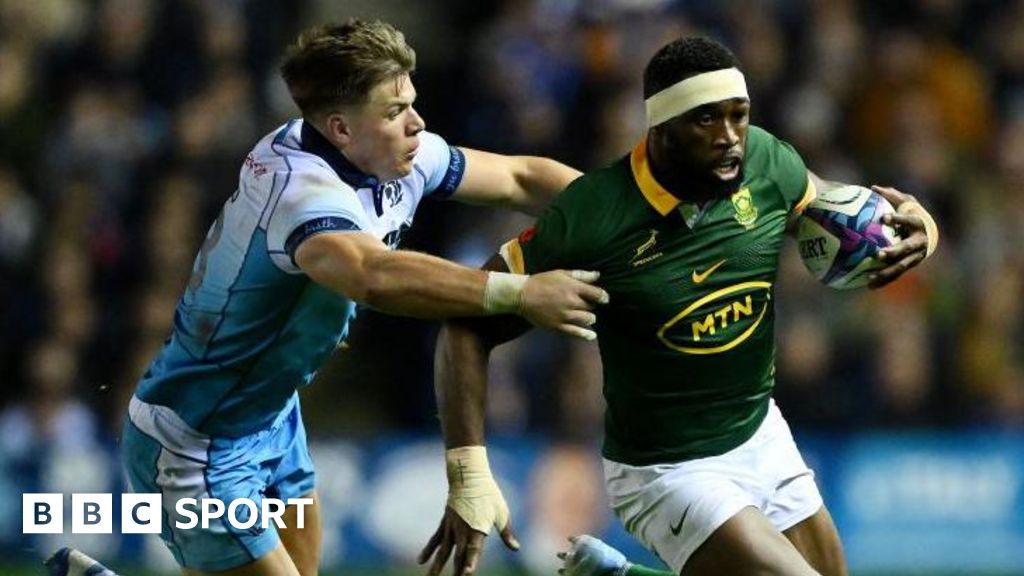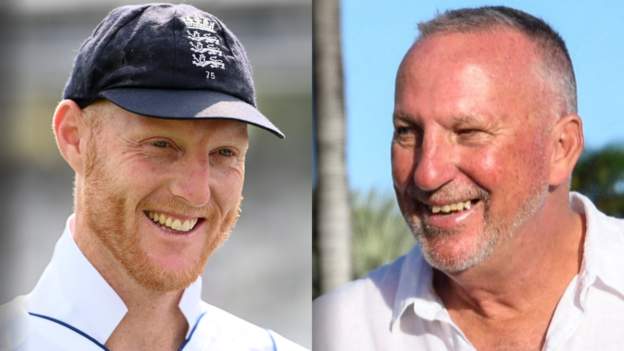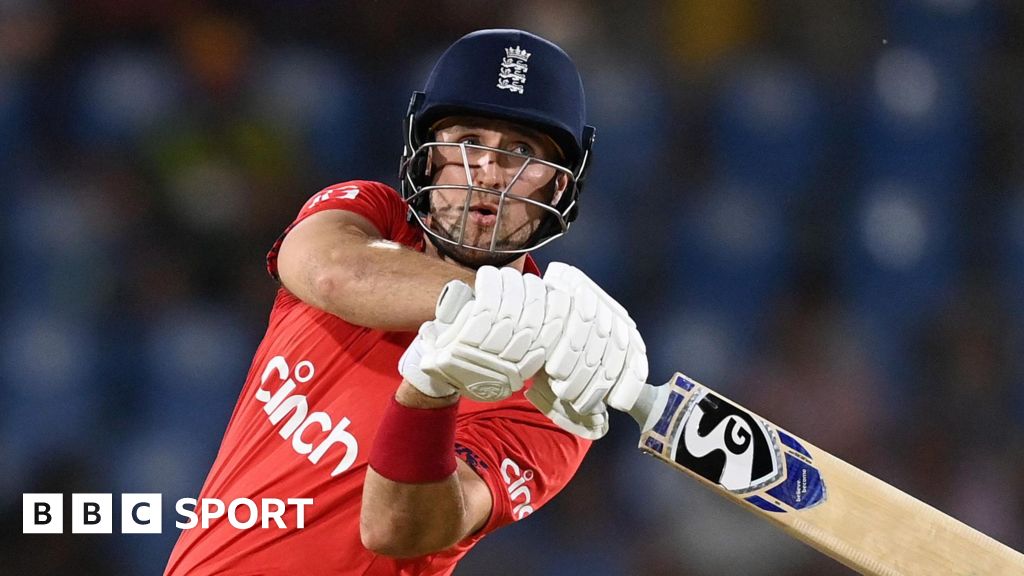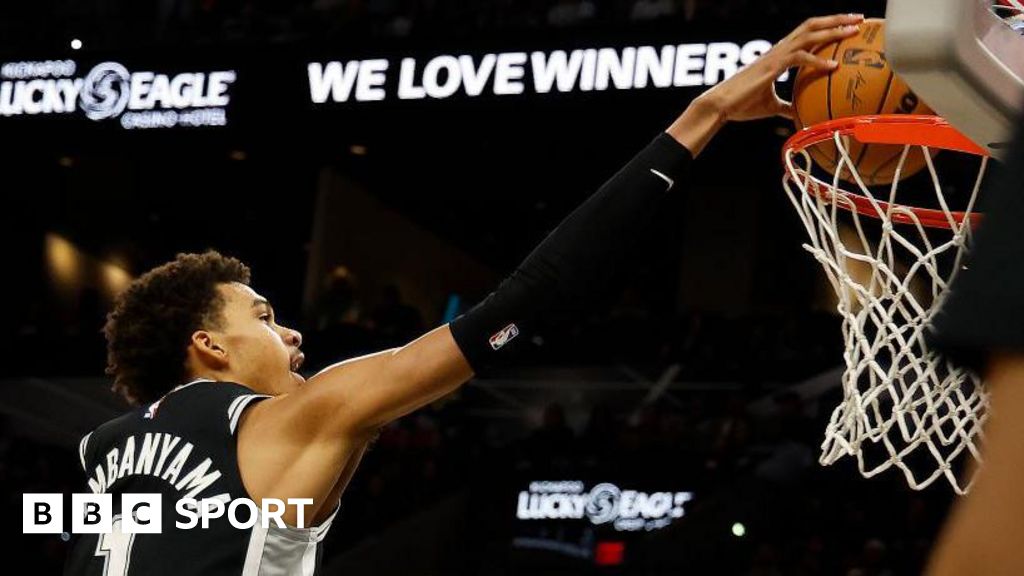They are two titans of English cricket – Ian Botham and Ben Stokes.
Stokes has revolutionised the way Test cricket is played since taking over the England captaincy at the start of the summer, with his swashbuckling, ultra-positive approach leading to nine wins from 10 matches in charge.
Lord Botham had a similar, all-action outlook to the game during his England career and is widely seen as one of the best all-rounders to ever play the sport.
As part of his appearance as guest editor on BBC Radio 4’s Today programme on Monday, Lord Botham spoke to Stokes about his mission to transform Test cricket, the rise of the white-ball game, their heroic performances at Headingley and the importance of prioritising your mental health.
Transforming Test cricket
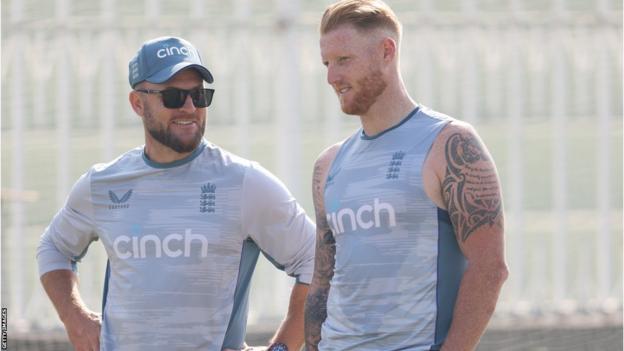
When Stokes succeeded Joe Root as Test captain in April, England had won just one of their past 17 Tests, including a 4-0 drubbing in Australia and defeat in the West Indies. The following month former New Zealand captain Brendon McCullum was appointed England coach. Together they have attempted to change how Test cricket is played, creating an atmosphere that allows players to express themselves and provide entertainment that will keep fans coming.
Stokes: “Test cricket has been spoken about in a way I don’t like. It is losing the attention of the fans with all the new formats and franchise competitions. We understand there are so many opportunities for players away from Test cricket. But for me it is so important for the game. I love playing Test cricket and felt we could do something different.
“Taking the result away from the mindset is a great starting point. Putting focus on making every day entertaining. Not allowing people to know what is going to happen. If people turn up excited about what they are going to watch you’ve already won before a ball has been bowled.”
Botham: “It’s about putting bums on seats. People now want to watch the game. You will lose the odd game but people are wanting to see Test cricket again. If we lose Test cricket, we lose cricket as we know it.”
The rise of white-ball cricket
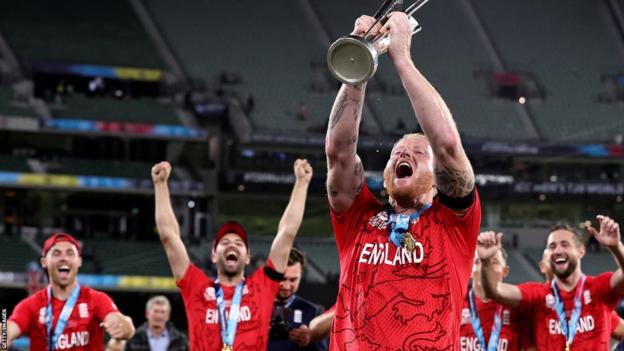
Test cricket has been threatened by the rise in popularity of shorter formats of the game, most notably T20s, which offer players the chance to earn bigger sums playing in franchise leagues across the globe. The schedule has become more congested, with some players forced to choose which formats to play. Stokes himself retired from one-day international cricket in July, saying playing three formats was “unsustainable”. He went on to help England win the T20 World Cup in November.
Stokes: “The scheduling doesn’t get enough attention that it should. A great example is England’s one-day series against Australia after the T20 World Cup. That was shoving three games in there. It made sense to someone to schedule a series which meant nothing.
“Some people say ‘you are playing for England, that should be enough’. But there is a lot more to factor in. You want international cricket to be the highest standard. But we have seen a lot of different squads being picked and players being rested, and that’s not the way international cricket should go.”
Botham: “Test match cricket is called that for a very good reason, because it tests all the faculties of a player. The emphasis is too much towards white ball. In England we currently have a few first-class games in early April and it disappears until end of season. It should be balanced better. You have to make room for it all.
“The idea of franchises is a solid, good idea. I just hope we can maintain a balance. And if franchises can maintain that balance then let’s have a look at it.”
Headingley heroics
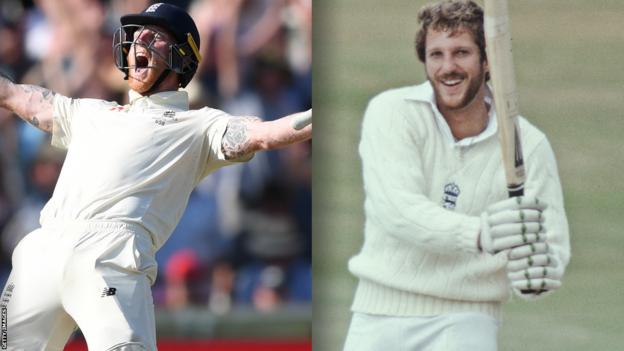
Stokes has grown used to comparisons with Botham, particularly after his astonishing 135 not out guided England from the brink of defeat to a sensational victory against Australia at Headingley in the 2019 Ashes, 38 years after similar heroics by Botham led England to victory against the same opponents at the same ground.
Botham: “I’ve got lots of great memories of Headingley. But I also had Bob Willis, who took 8-43. I was there at Headingley in 2019 and I thought ‘this is fun, this is how it should be played’. I loved watching the Aussies, their shoulders dropped, it takes a lot to do that. Stokes is box office. He empties bars.”
Stokes: “Moments like that in sport should always be cherished. The miracle of Headingley 1981, everyone who knows cricket knows about that. So for my moment to be compared is pretty cool.
“Andrew Flintoff was the all-rounder for me growing up. Flintoff would have been compared to Botham and I got compared to Flintoff. The player I admired was South Africa batter Herschelle Gibbs, he was ahead of his time and you look at Botham, he was ahead of his time as well. The way they move the game on. I love watching players who were different.”
Mental health
Stokes took a five-month break from cricket in 2021 to prioritise his mental wellbeing after a difficult few years that included the death of his father, Ged, in 2020. Stokes hopes his experience will encourage others to talk about mental health and help change the narrative around mental health breaks, something he discussed in a documentary about his career that was released earlier this year.
Stokes: “It is perceived that men shouldn’t be seen to show weakness, but I have never had an issue with expressing my feelings and opening up about It. I can’t tell you how much pride I had in myself for doing that after the messages I got from people I had never met.
“I was really blown away by the effect that section of the documentary had on their lives, it pushed them to go and get help. Some of the messages were very emotional to read.”
Botham: “I am very fortunate not to have been in that situation but I have been around players that have. They didn’t get any help or advice in those days. I take my hat off to Ben. By coming out there and saying, ‘I need a break’ a lot of players will be much more relaxed about following suit.”
Botham is the first of the Today programme’s Christmas guest editors. You can listen to his show on 26 December on BBC Sounds.








